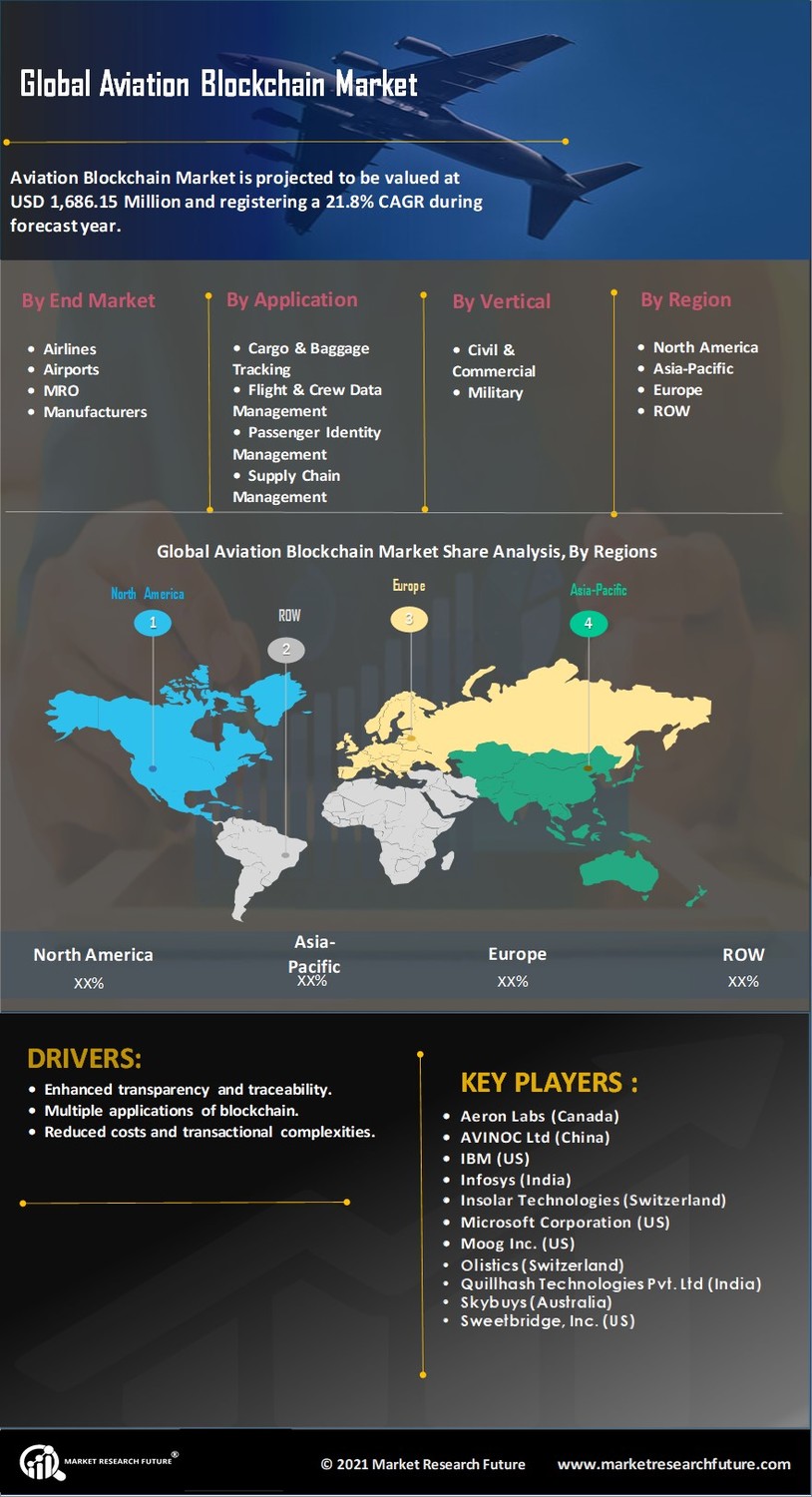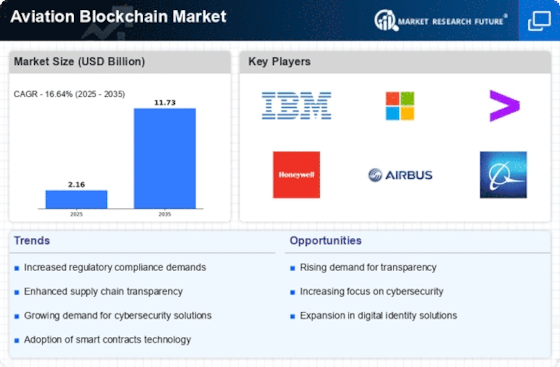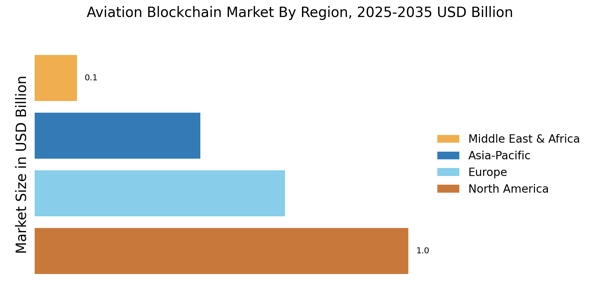Enhanced Data Integrity
The aviation blockchain Market is increasingly driven by the need for enhanced data integrity. Blockchain technology offers a decentralized and immutable ledger, which ensures that all transactions and data entries are secure and tamper-proof. This is particularly crucial in aviation, where accurate data is essential for safety and compliance. According to recent estimates, the aviation sector could save up to 30 billion dollars annually by reducing fraud and errors through blockchain applications. As stakeholders recognize the potential for improved data accuracy, the adoption of blockchain solutions is likely to accelerate, thereby transforming operational practices within the Aviation Blockchain Market.
Enhanced Customer Experience
The Aviation Blockchain Market is also influenced by the demand for enhanced customer experience. Passengers increasingly expect seamless and transparent interactions with airlines and service providers. Blockchain technology can facilitate this by providing real-time updates on flight status, baggage tracking, and loyalty programs. By leveraging blockchain, airlines can create a more personalized experience for customers, which is essential in a competitive market. Studies indicate that improving customer experience can lead to a 10 to 15% increase in customer retention rates, underscoring the potential benefits of blockchain in the Aviation Blockchain Market.
Improved Supply Chain Transparency
Supply chain transparency is a critical driver in the Aviation Blockchain Market. The aviation sector relies on a complex network of suppliers and manufacturers, making it challenging to track the provenance of parts and materials. Blockchain technology facilitates real-time tracking of components, ensuring that all parties have access to the same information. This transparency can lead to enhanced trust among stakeholders and reduce the risk of counterfeit parts entering the supply chain. Reports indicate that implementing blockchain in supply chains could reduce costs by up to 20%, highlighting its potential impact on the Aviation Blockchain Market.
Regulatory Compliance and Reporting
Regulatory compliance is a significant driver for the Aviation Blockchain Market. As aviation regulations become more stringent, the need for accurate and timely reporting increases. Blockchain technology can streamline compliance processes by providing a transparent and auditable record of all transactions. This capability not only simplifies reporting but also reduces the risk of non-compliance penalties. The aviation industry is projected to face compliance costs exceeding 10 billion dollars annually, making blockchain a viable solution to mitigate these expenses. Consequently, the integration of blockchain for compliance purposes is likely to gain traction within the Aviation Blockchain Market.
Cost Reduction through Operational Efficiency
Cost reduction is a primary motivator for the Aviation Blockchain Market. By automating processes and reducing the need for intermediaries, blockchain technology can significantly lower operational costs. For instance, smart contracts can automate transactions, reducing the time and resources spent on manual processes. Industry analyses suggest that blockchain could reduce operational costs by up to 25% in various aviation applications. As companies seek to enhance their bottom line, the adoption of blockchain solutions is expected to rise, further driving growth in the Aviation Blockchain Market.

















